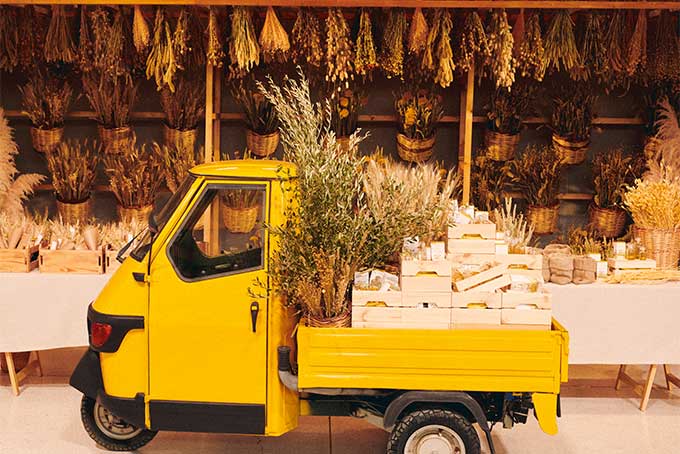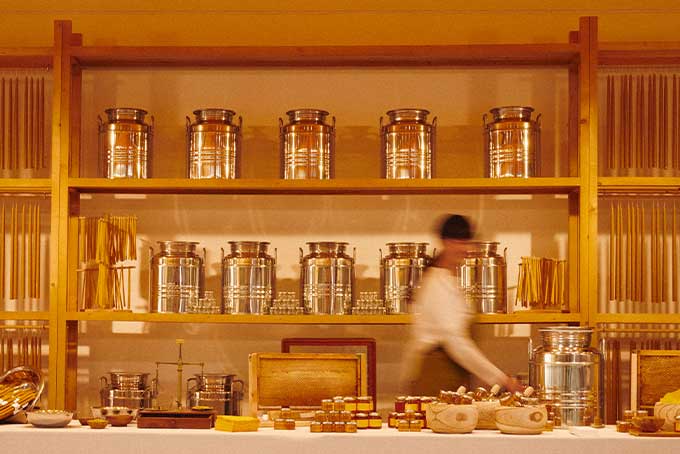Integrity, as they say, is who you are when nobody’s watching. As someone who spent many years on the inside at Hermès, I’ve become somewhat of an intimate accomplice. Much like those ‘come as you are’ family dinners where you’ve nothing to prove to anyone, it is fair to say that Hermès—the house and its people—are exactly who they are on the inside as they project to the world: a collective of dreamers, poets and at the very core, craftsmen.
Few embody this spirit more than celebrated Hermès perfumer, Christine Nagel. Years ago, as we sat in a conference room of the Hermès maison in Ginza, Tokyo, Nagel uttered a raison d’être that still liberates me today. “You have the right to make mistakes.” It was a decree that Hermès’s sixth-generation artistic director, Pierre-Alexis Dumas, made to her when she joined the house. Armed with this carte blanche to create, Nagel has birthed 22 fragrances, including Hermès Un Jardin à Cythère, since becoming the house’s perfumer creator in 2014.
“I think it’s the most beautiful thing that anyone’s ever told me,” she muses.
“You have to be bold. Without boldness, there’s no creation.You have to, you’re allowed to make mistakes.”
“He said, ‘I prefer if you make mistakes while being bold than making mistakes when following others’.”
The spirit of Hermès Un Jardin à Cythère
Fast forward years later to Athens, Greece, where we’re discovering Hermès’s latest perfume, Un Jardin à Cythère. The scent is inspired by the island of Kythira and in a confident, Nagel-esque move, it is a garden-inspired fragrance that features no flowers.
Instead, Un Jardin à Cythère by Hermès opens with the unbound freshness of wild grasses as lively, solar notes together with creamy, fresh pistachio come forth. “I found it very interesting to be talking about a garden that is not green or a garden with flowers in it. For me, drawing attention to the wild grasses is something that’s surprising,” she tells me, eyes twinkling behind her signature thick-rimmed glasses.
“I take risks. But risks at Hermès are, for example, to work on a vegetal scent rather than a floral one or to choose ginger for Twilly d’Hermès when you know that caramel notes are more successful. So using dry grass in a perfume is taking a risk.”
“I try to be surprising, just like the house of Hermès can be astonishing.”
Fascinated about her creative process, I ask about the role that curiosity plays. “I’m curious by nature and I like life. I think my job is the best job in the world. I’m doing it in the best company in the world, at the most beautiful maison, and I’m free in my creations because the house of Hermès allows me to be free in my creations.” It would have been easier to simply churn out another floral fragrance, but Nagel is never one to shy away from a challenge.
View this post on Instagram
Postcards from Greece
“There’s a French expression which says when you fall in love, you set sail for Kythira. That’s so beautiful. It’s quite a literary expression. ‘I’m setting sail for a wonderful moment of love’,” Nagel shares wistfully. She first visited Kythira, heart of the scent, more than 20 years ago.
“When I arrived, I had this image of olive trees. And just below the trees, you had the wild grasses that were moving with the wind. And this image was absolutely beautiful. I was feeling a lot of emotion under those olive trees because the wind carried with it a very surprising scent, a scent of cereals,” she recounts, describing the wind as a ‘caress’. Ultimately the encounter “was surprising because, usually, when you’re in a garden, you want to smell something. You have to bend over to smell the roses, to smell the flowers, to smell the leaves. And here, this was a gift. A gift that was brought to me by the wind. And it was a different scent.”




Impressions of Kythira
Until you can get your hands on a bottle of Un Jardin à Cythère, Nagel is happy to initiate us to the scent. Unable to travel during global COVID restrictions, Nagel poetically composed her impressions of Kythira entirely by memory. She sniffed an olive wood chalice for reference and fresh pistachios which are totally different from the dry pistachios as we know them. Fresh pistachios are moist and tender, according to Nagel, lending the perfume a velvet aspect.
“For me, it’s quite fresh in the beginning and this is something I was looking for. In Greece, you can feel the strength of this wind. At the same time, there’s this freshness and this citrus smell. Then you move on to the grass and the cereal notes, which are more regressive. When it rains in Greece, you see that the grass begins to go green again. This grass has fallen asleep. It’s not dead, it’s still there, it’s living, but it has fallen asleep. A little bit of rain and it starts all over again.”
She continues: “The pistachio is there; you can feel it quite quickly. You apply it on the skin, it’s fresh and at the same time, you feel that your skin is being warmed by the sun. And the olive wood is there, it’s the backbone. At Hermès, you always have this backbone and the olive wood brings this backbone without bringing a woody smell. It makes sure that the perfume is not just soft and shallow.”
Naturally, Nagel was unbound by marketing timelines. “It took me almost two years to be ready. The whole duration of the pandemic actually.” Her first post-pandemic trip was to Greece. “I found it again, I found my garden. And it was an incredible moment of emotion for me because I had worked from memory this whole time. My memory was on the right track.” Her boss, Pierre-Alexis Dumas, has deep Greek roots. He inhaled the finished work deeply and called it “home”.
“All of a sudden, I’m surprised and I’m astonished,” muses Nagel on her olive wood, pistachio and grass-driven scent. “That’s my work in perfume. I’ve always taken many risks. I like to do different, unexpected things.”





